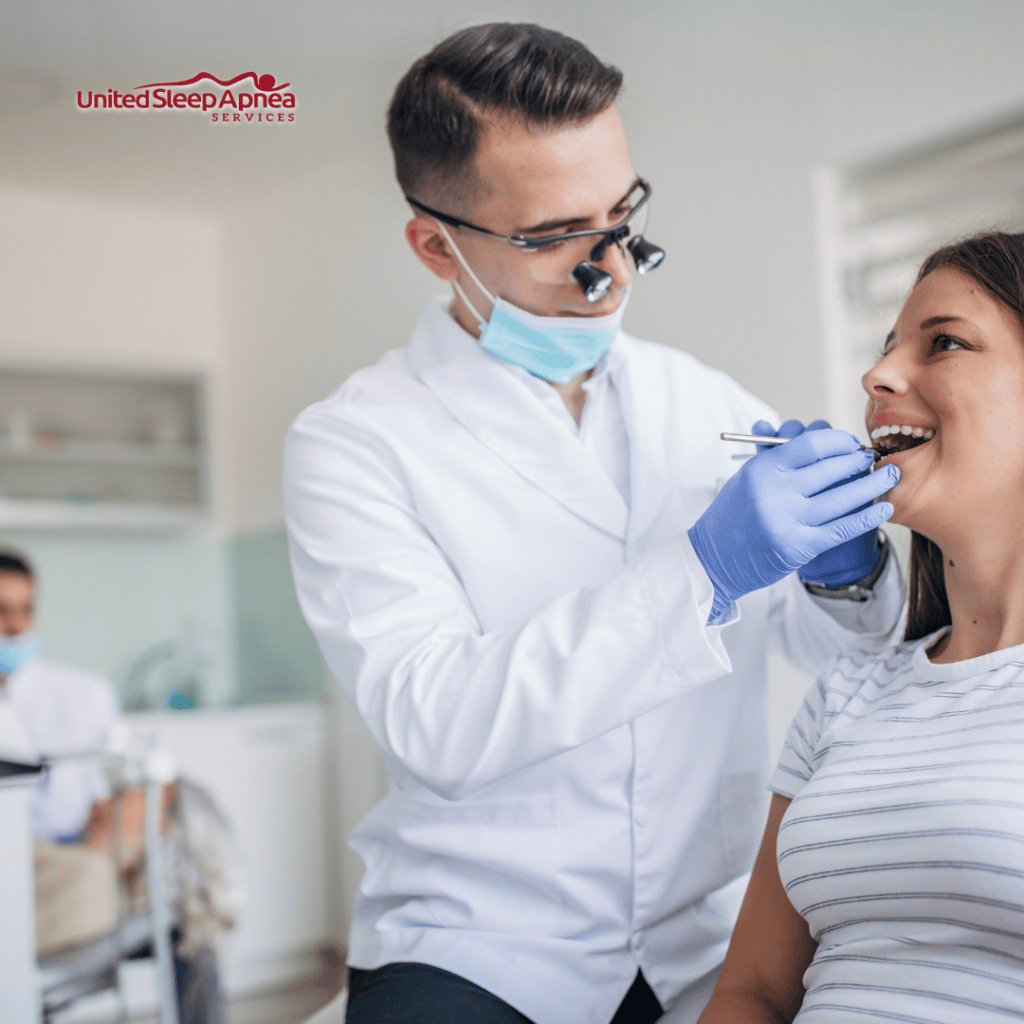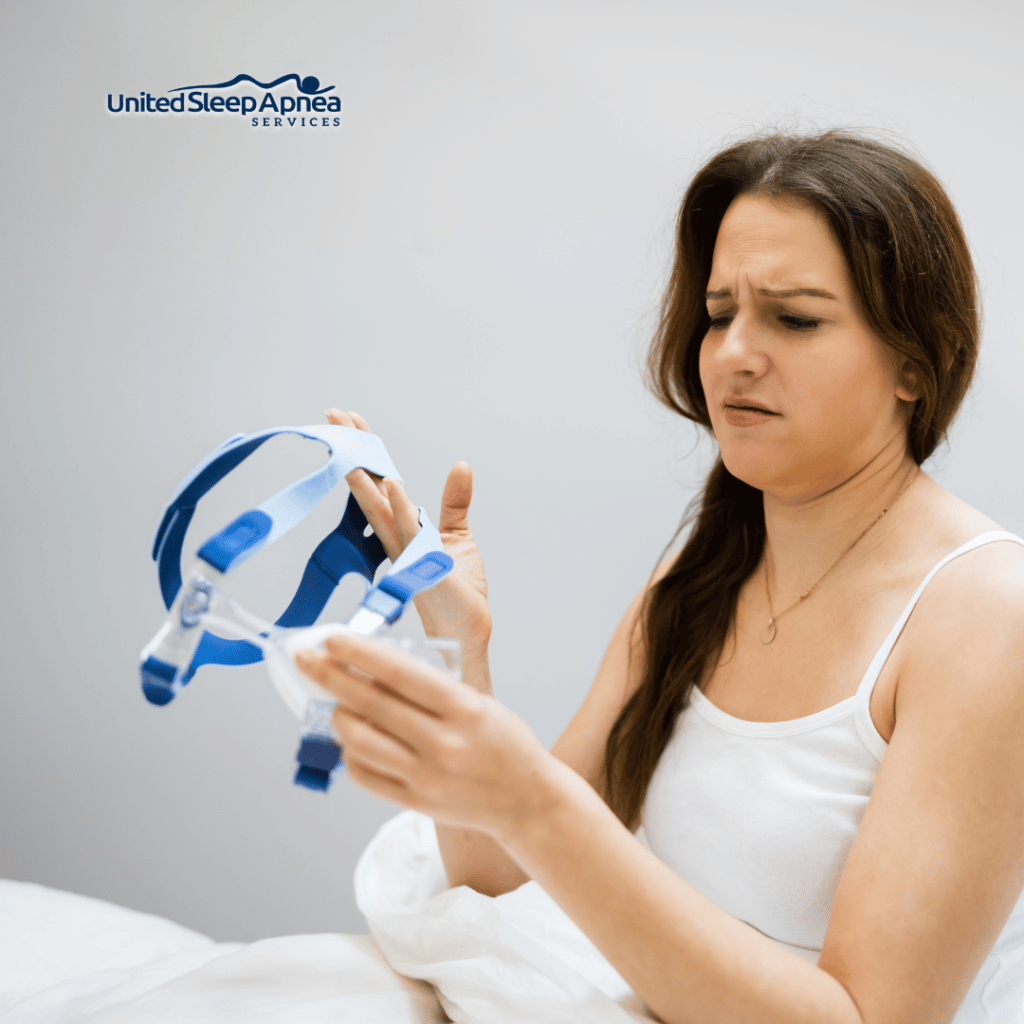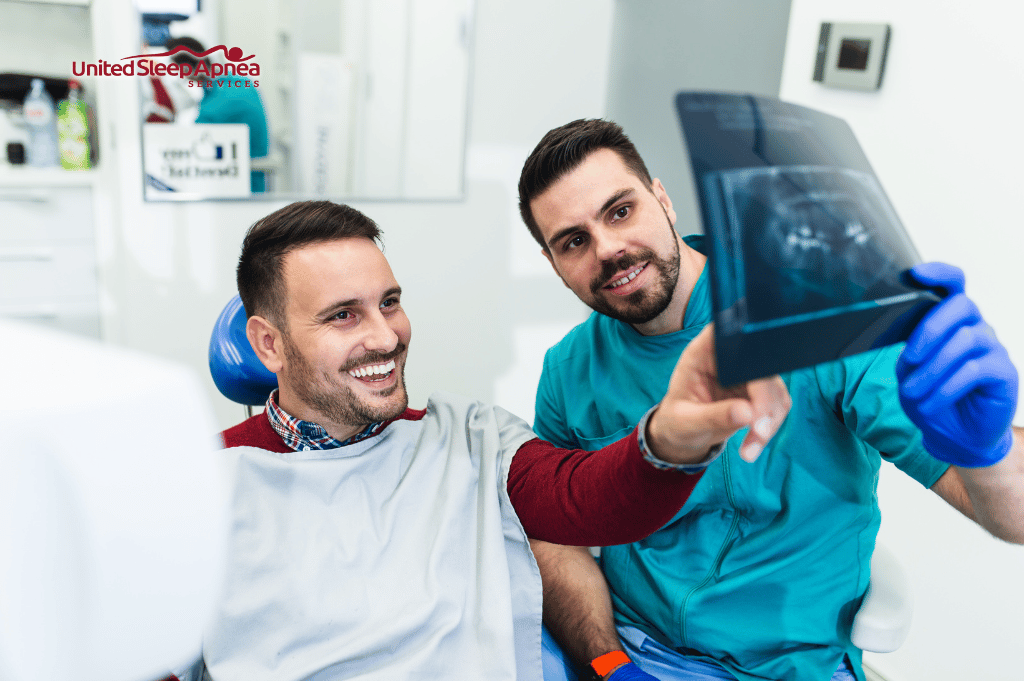Sleep apnea, one of the sleeping disorders, occurs when an individual faces difficulty breathing while asleep. Such people tend to hold on to their breathing many times during the night.
Since the inception of oral appliance therapy in 1980, several experimental and observational studies have checked its potency, quality, and success in treating sleep apnea.
More than 18 million adults in the United States suffer from sleep apnea. The worrying situation is that 90% of them do not know that they are experiencing the symptoms of sleeping disorders like sleep apnea.
Oral Appliance Therapy: Basis
When you adhere to the mouth and use the oral appliance treatment every night, you can observe improvements in your sleep quality. When your sleep quality increases, your body’s metabolism starts working on the proper cycles, energy homeostasis is maintained, and you can stay brisk throughout the day without feeling sleepy. Importantly, when you sleep well, your partner too begins to sleep well.
Workings of Oral Appliance Therapy
A recent article published in the journal “Current Sleep Medicine Reports” explains the workings of oral appliance therapy. When worn during sleep, the oral appliance looks like an orthodontic retainer.
The appliance displaces the lower jaw forward to increase the upper airway volume and maintain an open upper airway for enhanced breathing. This also reduces pharyngeal collapsibility. Also, when the upper airway opens up, the tongue moves anteriorly.
All these movements and repositions alter the anatomical abnormalities (increased pharyngeal collapsibility, sensitive ventilatory control system, and reduced arousal threshold) that cause sleep apnea (especially Obstructive Sleep Apnea) and allow the user to overcome their breathing trouble.
Why Oral Appliance Therapy?
- Comfy to use
- It can be carried wherever we go
- It does not produce any sound
- It acts like a mouthguard and not an actual appliance
Advantages of Oral Appliance Therapy
When it comes to compliance and adherence to sleep apnea treatment methods, oral appliance therapy helps increase results as a substitute to other preferable methods like CPAP.
A recent article mentioned that only 50% of the subjects stay compliant (at least 4 hours a night on 70% of nights) with CPAP. But with oral appliance therapy, it’s observed that 95% of them meet the compliance standards.
In addition, 84% of them wear their mouthpieces throughout the night every day. Regular treatment leads to sleep regularity sooner!

The Cost of Oral Appliance Therapy
FDA-approved Oral Appliance Therapy treatments for your sleep apnea involve a doctor and a specialist dentist working in sleep medicine.
So, how much does an oral appliance for sleep apnea cost?
The cost may vary case by case, including consultation with qualified professionals and the actual appliance-making and handling/treatment expenses.
According to the American Sleep Association, oral appliance therapy treatment for sleep apnea includes:
- Creation of molds for device making
- The mouthpiece (appliance)
- Any modification in the device
- Consultation fee during Dental visits
Does Insurance Cover Sleep Apnea Oral Appliance Therapy?
As the frequency of recommendations for oral appliance therapy treatment increased to deal with non-compliant CPAP patients, nowadays, most medical insurance companies support the patients by covering the cost of the treatment.
To enable your insurance provider to bear your sleep apnea treatment expenses, you must ensure proper documentation of prescriptions and other dental records. The insurance providers would ask for the sleep study analysis results, which matter the most, before choosing a treatment method for the sleep apnea problem.
A research study published in the Journal of Sleep and Breathing studied cost-effectiveness analysis. It proved that oral appliance therapy for sleep apnea could work as one of the most cost-effective treatments, CPAP therapy. Thus, oral devices become one of their choices when patients show they cannot tolerate the CPAP treatment method or want to go that route upfront with the direction of a Board Certified Sleep Physician.
Sleep Apnea Therapy Devices
Oral appliance therapy devices widen the pharynx’s size by repositioning the lower jaws in the lateral dimension, thus making it easier to breathe (open upper airway). This process also involves stretching your tongue muscles and stabilizing the hyoid bone. Therefore, it works well for obstructed sleep apnea patients who have a problem with upper airway breathing.
Major types of oral appliances for sleep apnea
- Mandibular repositioning devices: These are the most commonly adopted devices in the Oral Appliance method of treatment. The metal hinges in these oral appliances displace your lower jaw forward and down to open your upper airway path and keep up breathing.
- Tongue retaining devices: These oral appliances ensure to get hold of your tongue in its place and keep up the breathing flow.
Oral Appliances vs. CPAP
When oral appliances came out, the question was, “Do oral appliances really work for sleep apnea?”
Continuous Positive Airway Pressure (CPAP) therapy is a preferred and effective treatment method for sleep apnea patients. This method uses air pressure to open up the airways. This treatment suits patients with sleep apnea and other related sleep disorders.
A research study in the Journal of Clinical Sleep Medicine analyzed the pros and cons of oral appliance treatment methods for obstructive sleep apnea. The results show that:
1. CPAP shows a greater recovery of patients in the aspects of polysomnographic indices, arousal index, oxygen saturation, and apnea-hypopnea index compared to Oral Appliance Therapy.
2. In the case of subjective sleepiness analysis, the reduction in Epworth Sleepiness Score (ESS) is similar to both the CPAP and Oral Appliance Therapy methods.
3. The quality of life outcomes shows very little difference in the results between these two treatment methods.

However, when comparing the overall benefits of oral appliance therapy with other methods (like CPAP), oral appliances prove convenient, compact, cost-effective, and carryable. It does not use electricity for working, which saves worry about an energy source, costs, and further health consequences. Also, these appliances seem invisible when used, so your partner may not feel any discomfort sleeping with you.
Pros and Cons of Oral Appliance for Sleep Apnea
Which is better, CPAP or oral appliance therapy?
The severity of sleep apnea may vary from one patient to another. Without a formal sleep study or sleep analysis, a doctor cannot devise a suitable treatment method for your sleep apnea.
Mostly, doctors recommend oral appliance therapy to those who are non-compliant with traditional positive airway pressure methods. Doctors might use oral devices when they have diagnosed a repeated obstruction in the airway while breathing.
The repeated airway obstruction might have occurred due to various ill-effects or imbalances in the body, namely obesity, tonsils, a large tongue, nasal obstruction, or excess tissue in the throat.

ARE YOU MISSING OUT ON THE MOST RESTORATIVE SLEEP OF YOUR LIFE?
Reduce your daytime fatigue with the latest diagnostic testing and physician services for improved health.
Our team of experts will listen to your concerns, guide you through the process, and answer all your questions.
Generally, those patients with severe sleep apnea do not exhibit promising results with oral appliance therapy. Also, as oral appliances become ineffective or insufficient in this case, they prefer CPAP treatment to get rid of their severe sleep apnea events.
Though CPAP serves as the gold-standard treatment against sleep apnea, doctors often prefer oral appliance therapy when CPAP fails or seems ineffective. Hence, oral appliance therapy is sleep apnea’s most common backup treatment.
Also, patients who face challenges with adhering to the severe CPAP method may seek better alternatives that make them more comfortable or less invasive and end up choosing oral appliance therapy.
Are you among those millions who do not adhere to CPAP therapy? Or, is your current sleep apnea treatment not successful?
The following things constitute the most common cohort that gets recommended for oral appliance therapy:
- Those who feel other sleep apnea treatments are complicated
- Those who have just started suffering from sleep apnea and its symptoms
- Those whose Doctors prefer a combination of methods (preferably CPAP coupled with Oral Appliance Therapy) to treat sleep apnea
- Those whose previous sleep apnea treatments seem ineffective
United Sleep Apnea Services’ Role
Once you have completed a sleep study, one of our dental sleep providers will select oral appliance therapy as a treatment pathway if it is suited for you.
You will receive two things:
- A prescription for a tailored oral appliance and,
- A referral to an expert dentist near you who will handle your sleep apnea treatment with the oral appliance.
The United States Food and Drug Administration has certified over 100 oral appliances. And most companies accept major medical insurance plans for this oral appliance therapy.
A new trend seems to be growing in the US, where doctors have begun choosing oral appliance therapy as a treatment for sleep apnea due to non-CPAP-compliant patients and patients who will not tolerate traditional treatment methods.
Cost of Untreated Sleep Apnea
The economic costs of unmanaged sleep apnea can run up for medical expenses and treatments that stem from illnesses as an adverse side effect of not treating OSA early.
Not everyone can afford sleep apnea treatment expenses. At the same time, you cannot neglect your sleep apnea treatment to save on these expenses. Only timely diagnosis and treatment can help your body recover from sleep apnea and related disorders. Hence, experts recommend getting on board the ship to treat your sleep apnea with medical insurance support.
Overall, poor quality of life is the common effect of untreated sleep apnea. However, the other symptoms or effects include:
- Loss of productivity
- Hypertension
- Diabetes
- Heart disease
- Stroke
- Dementia
- Depression
The severity of sleep apnea increases with the delay in the onset of sleep apnea treatment. It has become the primary consequence of all the other complications the untreated have faced.
A Journal of Clinical Sleep Medicine reports that beneficiaries with untreated obstructive sleep apnea (OSA) have experienced increased healthcare utilization (HCU) and costs.
The American Academy of Sleep Medicine provides the statistics of a Frost & Sullivan survey. The survey found that the annual economic burden of undiagnosed sleep apnea among U.S. adults contributed to approximately $149 billion. This includes:
- nearly $87 billion due to productivity loss
- nearly $26 billion due to motor vehicle accidents
- nearly $6 billion due to workplace accidents
- These do not include the billions spent on comorbidities that stem from untreated sleep apnea patients.
When undiagnosed sleep apnea leads to such an economic loss, how much loss will the country face if this sleep apnea persists untreated?
Apart from the symptoms mentioned above and the effects of untreated sleep apnea, numerous other health concerns directly influence the body’s metabolism and hormonal secretions.
Several studies have proven that sleep apnea increases the risk of cardiovascular illnesses and body metabolism, like bone remodeling (bone formation and deformation).
Sleep apnea disrupts the circadian rhythm, which will then results in hormonal imbalance such as:

ARE YOU OR YOUR LOVED ONES AFFECTED BY SLEEP APNEA?
Our process is designed using a patient-centered, holistic curative model that focuses on lowering costs while improving outcomes.
We serve veterans, minorities, families, and those who can't get tests done at other facilities
Quality of Sleep: Your Quality of Life
Each of the different sleep apnea treatments you might have come across has its pros and cons. Numerous factors influence the benefits and barriers to using a particular sleep apnea treatment. Also, there is no one size fits all sleep apnea treatment on the market.
The only notion for any of the sleep apnea beneficiaries (both patients and doctors) is to resolve the current sleep apnea problem without exacerbating the severity of this sleeping disorder.
On top of everything, regardless of whether you’re affected by sleep apnea, check yourself up!
If you have already done these analyses for yourself and undergoing a custom oral appliance treatment already, better continue to check up periodically and adjust your current intensity of the treatment for fruitful results. On the other hand, if you’re just looking for good sleep apnea treatment, Oral Appliance Therapy might help you.
Sleep well, and get a healthier body and mind!


